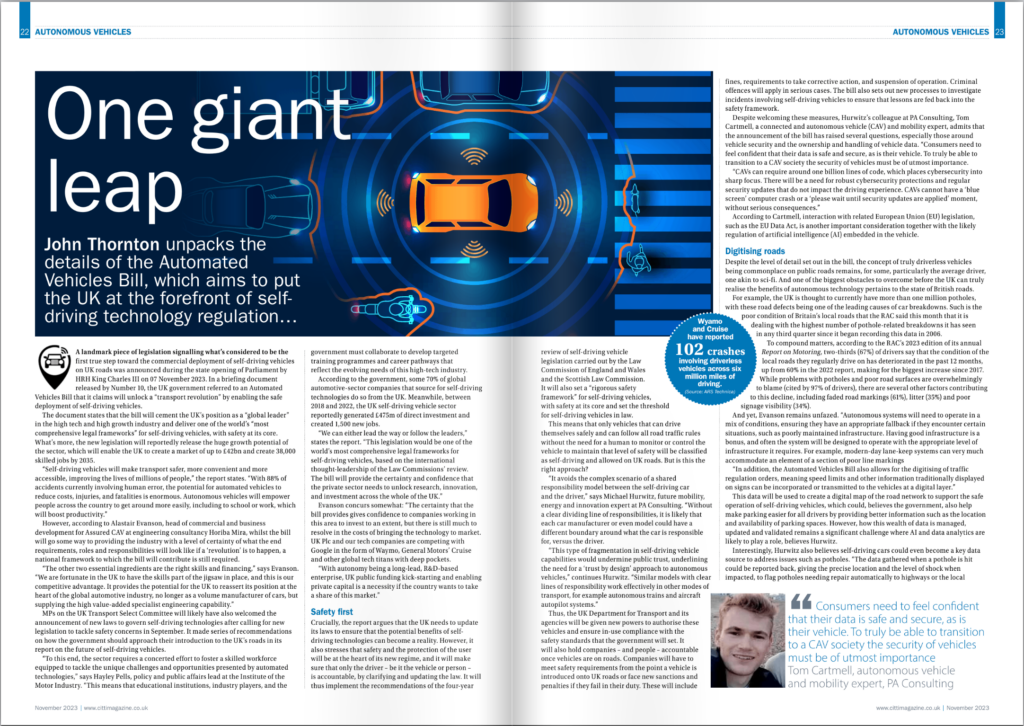UK transport secretary Mark Harper believes fully autonomous vehicles could feature on some British roads within two years.
As previously reported by CiTTi Magazine, the UK government announced plans to legislate for driverless cars in the King’s Speech, in November 2023.
Responding to questions from motoring journalist James May on the BBC’s Today programme, Harper said: “The legislation is going through parliament at the moment, so hopefully we’ll get that through parliament by the end of 2024.
“Probably by as early as 2026 people will start seeing some elements of these cars that have full self-driving capabilities being rolled out.
“We already know the technology works. You can see the technology being rolled out with a safety driver in place.
“I’ve seen the technology being used in California for example, without a safety driver, so in full, autonomous mode.
“This technology exists, it works and what we’re doing is putting in place the proper legislation so that people can have full confidence in the safety of this technology, which I think is one of the important things we’ve got to do.”
READ MORE: Funding boost for UK self-driving transport technologies
According to Harper – who did not refer to current issues with Cruise driverless vehicles in the USA, which have been taken off roads following a collision with a pedestrian in San Francisco – the technology will be rolled out “gradually” in the UK and would be up to individuals if they want to use it.
“It has a huge number of potential uses, the obvious one is 88% or so of road traffic collisions we see today are caused by driver error of some description,” he added.
“There is a real potential for this sort of technology to actually improve safety on the roads, not just for drivers, not just for passengers, but for other vulnerable road users – pedestrians, cyclists – to really improve road safety, which is a real win for everybody.”
According to the Society of Motor Manufacturers and Traders (SMMT), self-driving technology could help save 3,900 lives and prevent 60,000 serious accidents.
In a SMMT report published in November last year, the trade body also said the technology has the potential to deliver a £66bn boost to the British economy by 2040.






